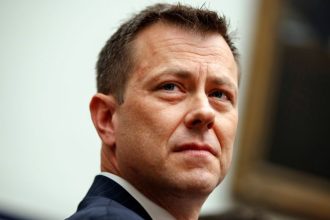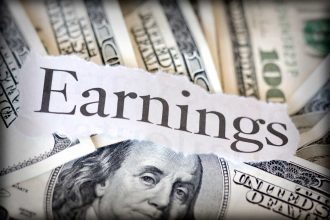Since its release in 1969 as one of the first rock operas, The Who’s fourth studio project Tommy has gone on to sell more than 20 million albums.
Ahead of its time, the influential songs inspired a film in 1975 as well as a book and musical in the early 90s, with 1992 performances at San Diego’s La Jolla Playhouse soon giving way to nearly 900 stagings during an initial Broadway run which wrapped up in 1995.
Who songwriter and guitarist Pete Townshend wrote the original lyrics and music, collaborating with writer and director Des McAnuff to adapt Tommy for Broadway, with the duo working together again to put a contemporary spin upon it as the beloved story returns to the stage.
Opening last night at Chicago’s Goodman Theatre, The Who’s Tommy closes out the theater’s current season, a residency now set to run until August 6, 2023 within the Goodman’s 856 seat Albert Theatre following a second extension.
“Doing this again is joyous,” said McAnuff, who’s directing the current Chicago installment, following Monday night’s performance. “We decided we wanted to do a screenplay and to take this version of the story and hopefully at some point film it. And that’s what led to this. When we started working on it, it just seemed it was time to do it on stage again.”
Key to the success of the Goodman staging lies in pushing the story forward. Stunning use of screens and visuals help to drive the narrative in a unique new way while updated choreography fuels energy and excitement. And, for some shows, tickets start as low as $40, keeping the new presentation accessible.
“Our goal, especially for choreography, was to be super innovative – and really tell this beautiful story about Tommy Walker,” said Associate Choreographer Dee Tomasetta. “‘Innovative’ meaning totally different from the original production. But innovative in the sense of really being authentic to the styles within the era – how he’s growing up and the timeline too. Not just doing contemporary dance when it’s the 60s and vice versa,” she explained. “Not just dancing for the sake of dancing but truly to be innovative. And have that physicality. So coming up with fresh choreography that Broadway hasn’t seen and really physicalizing it to tell the story.”
The new cast numbers nearly 30 and a terrific nine-piece band does the album proud, delivering live renditions of The Who’s music during performances that nearly resemble concerts, loudly but respectfully recreating one of rock’s most renowned live acts.
The lyrical content is up front with each song delivering the still relevant themes that have allowed Tommy to continually appeal to new generations of fans even after 54 years.
“I was somewhat familiar because my wife did a production of it at Pittsburgh CLO. I saw Alice Ripley play it. So I was semi-familiar,” said actor Adam Jacobs, who plays Tommy’s father Captain Walker in the new production, of approaching the story.
“I think this piece is somewhat timeless. It’s iconic. And the themes do resonate with present day audiences I think: the bullying, following leaders blindly. Forgiveness and grace for making clumsy choices as parents. There’s a lot,” said Jacobs, who also portrayed Aladdin in the Disney’s musical’s original cast, later starring as Simba in a Broadway run of The Lion King. “And of course working with Des, the original director. He is so full of amazing stories and information that just adds layer upon layer. As an actor, I just feed off of it. It’s been amazing working with him.”
For McAnuff, the new Tommy run isn’t about just presenting a story that’s still relevant five decades later, it’s about providing a forum in which fans can connect with ideas that arguably resonate more strongly than they ever have.
“The phrase we talked about when we decided to do this is, ‘the world has finally caught up to Tommy Walker,’” he said. “We felt that there would be a pertinence to this piece that maybe it didn’t even have 30, let alone 50 years ago. Which has to do with our attitudes about trauma and bullying and abuse,” McAnuff explained. “Tommy is abused in so many different ways. It comes from all angles. And I think we’re more aware of that,” he said.
“But the thing that really speaks to my heart, is that we look around and we all seem to be looking for somebody that can give us all the answers – whether it’s a spiritual leader, a religious leader, a political leader, a hip-hop star or a rock and roller. And we all seem willing to follow those people over the edge of the cliff,” McAnuff said. “I think this thing is ultimately about thinking for yourself. And I think Tommy’s final freedom is saying to his followers, ‘You don’t need to experience what I experienced. You have your own.’ And I think that is really very important right now,” said the director. “And we don’t have to hit it over the head. It’s there in the piece. It’s there for the taking.”
Townshend and Who co-conspirator Roger Daltrey remain on the road amidst their “Who Hits Back” tour. Joined again by a full orchestra on the run, they wrapped up this leg of the outing last week in Cornwall, U.K. with one more performance scheduled for Sandringham on August 28.
While flight issues prevented Townshend from attending Monday night’s Chicago opening, the Rock and Roll Hall of Famer was clear on the meaning of it during a statement delivered on stage by McAnuff.
“I so wish I was there,” said Townshend. “Tommy has been a trip for me from the beginning back when I first started writing songs for it. Then, working with Des to bring the piece to the stage in La Jolla and then to Broadway. It was truly an ‘Amazing Journey,’” said the Rock and Roll Hall of Famer. “I am stunned and overwhelmed that the journey continues.”
Read the full article here




